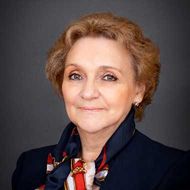- A
- A
- A
- ABC
- ABC
- ABC
- А
- А
- А
- А
- А
- HSE University
- Faculty of World Economy and International Affairs
- School of International Regional Studies
- News
- The Future of Lebanon & New Balance of Power in East Mediterranean
-
School
-
Online
The School of International Regional Studies is a research and educational centre seeking to revive international regional studies as an academic discipline in Russia. The department’s world-class professors train the next generation of regional studies specialists while developing an increasingly prestigious research school.
Vinogradov A., Streltsov D., Nelidov V. et al.
Singapore: Palgrave Macmillan, 2024.
Seyedi Asl S., Sadygzade M., Alamdari S. Z.
Journal of Social Studies. 2025. Vol. 11. No. 1. P. 1-7.
Kanaev E., Fedorovskiy A., Kupriyanov A. et al.
In bk.: Russia and the World: 2024. Economy and Foreign Policy. Annual Forecast. IMEMO RAN, 2024. P. 105-111.
Shein S., Ryzhkin E.
Political Science. PS. Высшая школа экономики, 2022. No. 89.

The Future of Lebanon & New Balance of Power in East Mediterranean
The welcome speech was given by the Head of the HSE School of International Regional Studies of the Faculty of World Economy and International Affairs, Associate Professor Vera Vishnyakova. Dr. Vishnyakova remembered that Dr. Rizk was the first expert invited to the project. Moreover, she emphasized the importance of such meetings in the current age of digitalization and globalization, when any person from any country can participate in the timely discussions.
Dr. Rizk started by outlining the main characteristics of the East Mediterranean, among which the main one was the instability of the Middle East and North Africa regions due to terroristic attacks and the issues of democracy, brought mainly by the US. The professor described the general interests of the United States in the region, especially the possibility to maintain and extend the influence in the sea by becoming the “number one” force in the region with five seas.
To create a picture of the future of Lebanon we should take into consideration five majpr points. First, the potential scenarios of future crises, namely escalation of the US-Iranian relations, involvement of other countries, especially European ones, into the negotiation process, and the growing influence of different Iranian organizations, such as Hezbollah’s role in Lebanon.
Second, the European efforts to mediate the conflict in the region. Professor Rizk drew the attention of the participants to the relations of the European Union and Turkey, especially the conflict with Greece.
Third, we should consider how Iran will be affected by the elections in the US: if parties agree to have a deal, what the deal will be between these countries?
Fourth, how the new Turkish foreign policy of Erdogan will affect international relations and the situation in the region.
Fifth, Dr. Rizk proposed to consider the future of radicalism in the region, which is, unfortunately, not a new phenomenon.
Discussing the future of Lebanon and the whole region in 10 years and Professor Rizk discussed economic, security, strategic, and geopolitical characteristics. Moreover, he provided an outlook of the future of Syria and US relations and sanctions on the countries of the region; Iranian settlements with the US. Important are the relations between Palestine and Israel and the participation of different countries in this conflict. The role of Russia and its relations with the US are as well of vital importance, especially concerning Syria. The role of China and the Marshall plan are also involved in the situation, though rather indirectly – it can provide alternatives for the Arab countries in trade and gas transportation. Important is also the role of Turkey in an escalation of Lebanese currency due to the so-called “triangle of instability” – Turkey, Israel, Iran that can influence the Gulf region.
Among the current challenges, Dr. Rizk named the latest crisis with the explosion in Beirut that will change the settings in Lebanon for the nearest future. The new role of Iran in the region and its competition with Israel should also be taken into account.
Though the political crisis in Lebanon, Dr. Rizk believes that economic and security issues will be solved soon, and Lebanon will become an economic hub in the region, a hub of communication in the region and mediator in the terroristic conflicts. Lebanon can become a model of a hub of communication and hub of peace thanks to the culture despite the fact that sometimes Lebanon is portrayed as a failed state. Even though Lebanon has certain economic and political problems, Dr. Rizk believes that Lebanon can overcome them in the nearest 5-10 years and a prosperous future is awaiting Lebanon.
- About
- About
- Key Figures & Facts
- Sustainability at HSE University
- Faculties & Departments
- International Partnerships
- Faculty & Staff
- HSE Buildings
- Public Enquiries
- Studies
- Admissions
- Programme Catalogue
- Undergraduate
- Graduate
- Exchange Programmes
- Summer Schools
- Semester in Moscow
- Business Internship
-
https://elearning.hse.ru/en/mooc/
Massive Open Online Courses
-
https://www.hse.ru/en/visual/
HSE Site for the Visually Impaired
-
http://5top100.com/
Russian Academic Excellence Project 5-100
- © HSE University 1993–2025 Contacts Copyright Privacy Policy Site Map
- Edit



